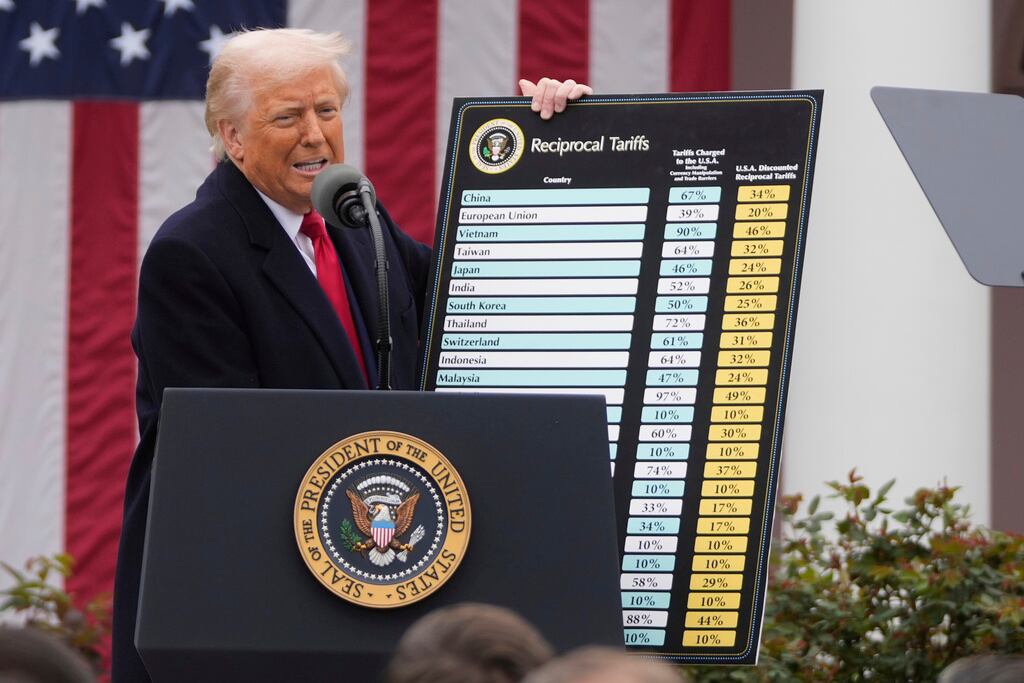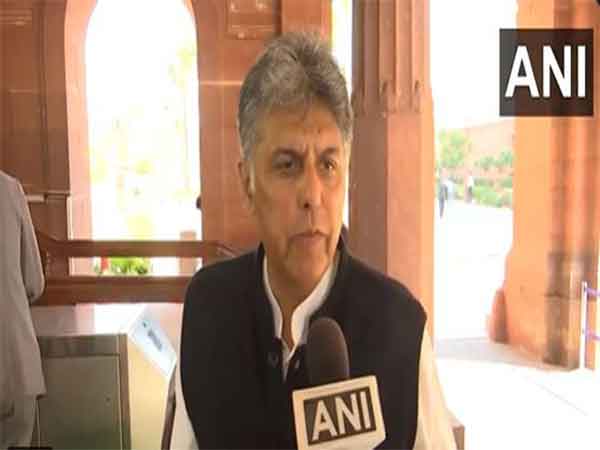
The President of the United States, Donald Trump, announced plans on Wednesday to impose widespread tariffs against all countries in the world, claiming that “our country has been looted, plundered, violated, and exploited” by other nations.“Taxpayers have been ripped off for over 50 years,” said Trump in statements at the White House. “But that’s not going to happen anymore,” he added.
The president has promised that manufacturing jobs will return to the United States as a result of taxes, but his policies run the risk of causing a sudden economic slowdown, as consumers and businesses could face steep price increases in cars, clothing, and other goods.The tariffs are added to other similar taxes of 25% on imports of automobiles; levies against China, Canada, and Mexico, and expanded tariffs on steel and aluminum.Trump has also imposed tariffs on countries that import oil from Venezuela and plans separate import taxes on medicines, wood, copper, and computer chips.

Why does Trump start this “trade war” against the world?None of the warning signs about a stock market crash or a gloomy consumer sentiment have made the government publicly doubt its strategy.The White House trade adviser, Peter Navarro, has indicated that the new tariffs will raise $600 billion annually, which would be the largest tax increase since World War II. View this post on Instagram A post shared by NBC News (@nbcnews)The US Treasury Secretary, Scott Bessent, told lawmakers that tariffs would be limited and could be negotiated down by other countries, according to Representative Kevin Hern’s office.
It is almost certain that importers will pass on some of the cost of taxes to consumers. The Yale University Budget Lab estimates that a universal tariff of 20% would cost the average household between 3,400 and 4,200 additional dollars.The premise of the Republican government is that manufacturers will quickly increase national production and create new jobs in factories.
Based on the possibility of broad 20% tariffs that have been suggested by some White House advisors, most analyses foresee an economy hindered by higher prices and stagnation. The economic growth of the United States, as measured by the gross domestic product, would be approximately one percentage point lower, and clothing, oil, cars, housing, groceries, and even insurance would cost more, according to the analysis by the Budget Laboratory.The tariffs are a unilateral decision by TrumpTrump would be applying these tariffs unilaterally, as he has ways to do so legally without the approval of Congress.
This makes it easier for Democratic lawmakers and policymakers to criticize the Republican government if the uncertainty expressed by businesses and declining consumer sentiment are indeed signs of problems to come. View this post on Instagram A post shared by CNN (@cnn)Democratic representative Suzan DelBene from the state of Washington said that tariffs are “part of the chaos and dysfunction” being generated in the Trump administration. DelBene emphasized that Trump should not have exclusive authority to increase taxes as he intends without obtaining approval from legislators, and pointed out that so far, Republicans have been “blindly loyal.
”“The president should not be able to do that,” DelBene said. “This is a massive tax increase for American families, and it is without a vote in Congress..
. President Trump promised during the campaign that he would reduce costs from day one. Now he says he doesn’t care if prices go up; he has broken his promise.
”Even Republicans who trust Trump’s instincts have recognized that tariffs could impact an economy with a healthy unemployment rate of 4.1%.“We will see how everything unfolds,” said the House of Representatives President, Mike Johnson.
“It may be complicated at first. But I believe this will make sense for Americans and will help all Americans.”Partners of the United States will respond with their ratesTraditional trading partners are preparing their own countermeasures.
Canada has already imposed some in response to the 25% tariffs that Trump linked to fentanyl trafficking.In response to tariffs on steel and aluminum, the EU imposed tariffs on US goods worth 26 billion euros (28 billion US dollars), including bourbon, which led Trump to threaten a 200% tariff on European alcohol. View this post on Instagram A post shared by Metro World News (@metroworldnews)Many allies feel they have been dragged into a confrontation by Trump, who routinely claims that friends and foes have essentially ripped off the United States with a mix of tariffs and other trade barriers.
“Europe did not start this confrontation,” said the President of the European Commission, Ursula von der Leyen. “We do not necessarily want to retaliate, but if necessary, we have a solid plan to retaliate and we will use it.”Italian Prime Minister Giorgia Meloni, an admirer of Trump, reiterated on Wednesday her call to avoid a trade war between the EU and the United States, pointing out that it would affect both parties and have “strong” consequences for her country’s economy.
.











